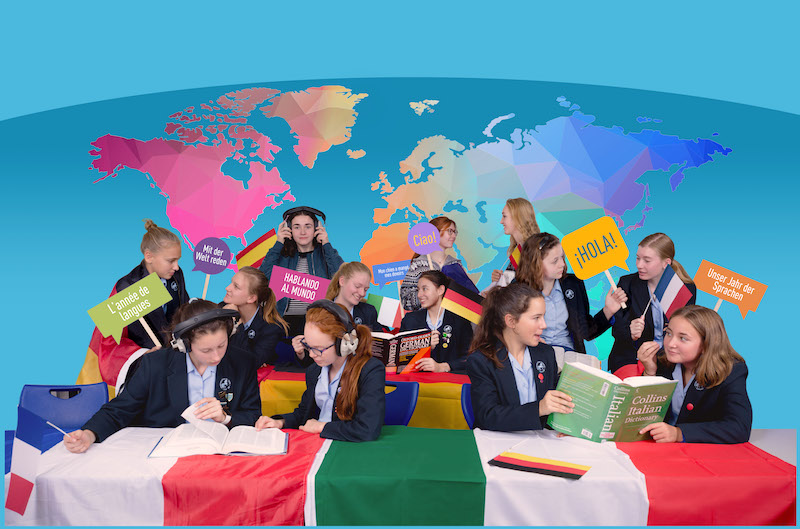The importance of languages post-Brexit
Posted on 22nd Jul 2019 in School News, Language Learning
Jonathan Marshall, Head of Modern Languages at Headington School, considers the impact on language learning of Britain's exit from the European Union...
Mandarin, Arabic, Russian, German, French, Italian or Spanish? I am often asked by parents which languages their children should study to prepare them for a post-Brexit world.
With China’s rapid economic growth, rich history and cultural diversity, Mandarin is a strong contender. French, too, seems increasingly important, as the West strikes new trade deals with fast-growing African countries such as the Côte d’Ivoire, Sénégal and Niger.
Regardless of the outcome of Brexit, we can remain confident the EU will continue to be a significant trading partner.
We also need to take practical concerns into consideration. Learning a character-based language, like Mandarin, requires twice as much time as those based on the Latin alphabet.
Given the difficulties of predicting which languages will be needed strategically 20 years from now, perhaps we shouldn’t agonise over which to learn.
Let’s not forget that the main reasons for learning them are far more wide-ranging than simple economic advantage. At Headington School, where we are currently celebrating our Year of Languages with events aimed at opening girls’ eyes to the many and varied uses of languages, we want our students to become confident communicators who are worldly, open-minded and knowledgeable of other cultures, whichever languages they choose.
It’s important they have the skills to pick up further foreign tongues in future and to gain an understanding of what it means to speak another language.
You could argue that, as English is spoken worldwide, there’s little point learning languages at all. In the emerging economies with which the UK is keen to trade, this isn’t always the case.
Making the effort to speak in the mother tongue of the person you are dealing with means you are meeting them on their terms. Exchange opportunities, masterclasses delivered by experts in their field such as journalists, diplomats and figures from business all help convey this message to the pupils at my school.
As Nelson Mandala famously said: “If you talk to a man in a language he understands, that goes to his head. If you talk to him in his language, that goes to his heart.”